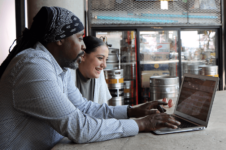Uncover the reason for a delayed tax rebate, and learn what you can do to avoid screaming ‘Where’s my tax refund?!’ next year.

It’s a fact: People hate waiting. In a study, nearly 70% of people said the speed of a web page impacts their decision on shopping with an online retailer. And in another, the likelihood of a mobile visitor abandoning a page increases by 123% as page load times rise from 1 to 10 seconds.
Unfortunately, the wait time for a tax rebate wasn’t included in either study. Like it or not, most people wait 6–12 weeks for a tax rebate. But missing information and tax deadlines, plus the effects of COVID-19 and Brexit, can lead to even longer delays. We want to uncover the reason for a delayed tax rebate, and show you what you can do to avoid screaming ‘Where’s my tax refund?!’ next year.
How Long Does a Rebate Normally Take?
After you pay tax, you may be owed a tax rebate from HMRC for a number of reasons. If you’re an employee and are paying tax through pay as you earn (PAYE), your figure may have been calculated incorrectly and you overpaid tax.
If you’re self-employed and complete a self-assessment tax return each year, it’s possible this may have errors. These errors may have resulted in you paying more tax than you needed to. Whatever the reason, there’s no doubt you’ll be wondering how long your tax rebate will take before the money lands in your bank account.
It’s difficult to answer this question exactly, as the time it usually takes HMRC to complete a tax refund depends on their current processing times. In most cases, it takes 8–12 weeks. This can vary on the type of rebate you’re after too. Here’s an overview of things you might want a rebate for and their typical wait times:
- Uniform tax refund: 6–12 weeks
- Flat rate expenses rebate: 6–12 weeks
- Professional fees refund: 6–12 weeks
- Mileage claims: up to 12 weeks
- Left or leaving the UK tax back: 6–12 weeks
- Tool tax back: 12–24 weeks
But if your tax refund is taking longer than this, there may be several reasons why.
Reasons for a Delay
Missing Information
Any missing information from your tax refund claim form means HMRC are going to have to add to the time it takes to process your rebate. This is because they’ll have to contact you in order track down key missing personal data, which might include your:
- P45
- P60
- ID, such as a passport
- Tax credit payment details
You can help speed up this process by making sure you provide all the information HMRC asks for when submitting your rebate application.
Deadlines
You may find your tax rebate takes longer to process if you submit your claim at certain times of the year. HMRC has several key dates to work around during the tax year, including:
- 31st January for processing online self-assessment tax returns and collecting any tax owed
- 6th April is the beginning of the new tax year, and HMRC will be contacting many people to tell them if they need to complete a self-assessment
- 31st July for the 2nd payment on account, where people pay a contribution towards next year’s tax bill
- 31st October for processing paper self-assessment tax returns
For the above reasons, it’s a good idea to avoid submitting your claim online around these times.
Covid-19
HMRC has been administering the government’s economic support for taxpayers throughout the COVID-19 pandemic. This support is designed to keep businesses and individuals going, and measures have included:
- The Coronavirus Job Retention Scheme (or furlough payments)
- The Self-Employment Income Support Scheme (SEISS)
- Eat Out to Help Out, for the hospitality sector
- Extra Universal Credit payments
- Rebates for Statutory Sick Pay
- Instalment plans for self-assessment tax bills
These measures were set quickly and successfully, but HMRC didn’t have new members of staff that could help them sort through this extra work. So things like tax rebates and tax investigations were put on hold, and now staff are catching up with these tasks.
And remember that HMRC staff are real people, which means they’ve had to work around the same COVID-19 restrictions many others have had to. This includes working from home and social distancing. Some will have had to fit this around childcare as well. And then they’re getting their heads around how to process entirely new schemes in a short space of time.
As these schemes are winding down—or have now closed—HMRC staff can now turn their attention to their regular work. This may include hiring new people to help deal with the backlog of tax rebates that need processing, once they’re trained up and have the right knowledge and experience.
Brexit
Brexit has also had an impact on the speed at which tax rebates are processed. After Britain left the European Union, a lot of businesses based in other countries started having to deal with paperwork that they never had to before. And it’s up to HMRC to administer all of this extra paperwork.
One example includes a drastic increase in the number of VAT registrations to process from other countries. Previously, these businesses could trade without having to complete this kind of paperwork. And in order to keep business moving, HMRC staff have had to prioritise these kinds of tasks over their day-to-day activities, like processing tax rebates.
What Does HMRC Say About COVID-19 and Brexit?
HMRC have said: ‘‘We’re doing all we can to process self-assessment rebate claims as fast as possible and are sorry to any customers who have waited longer than expected. We’re continuing to redesign our business to meet our customer demand needs in the most effective way, based on our available resource.’’
Like many of us, HMRC staff have been working the best they can in the situation they’ve found themselves in. And delays don’t mean they don’t understand how important that tax rebate is to you and your business.
It may take some time for staff to get back to their pre-COVID, pre-Brexit productivity levels. So be patient with them. Remember, they’re human, just like you.
Speed up Your Tax Rebate Claim
Once your tax rebate application has been submitted to HMRC, there’s not a whole lot you can do to speed up the process. It’s now entirely in their hands, and they’re dealing with a backlog of rebate claims due to COVID-19 and Brexit.
But there are things you can do prior to submitting your rebate application to HMRC, which may help them to get through your application a little bit quicker. This includes:
- Making sure you have all the necessary information and paperwork ready to send to HMRC, so they don’t need to contact you to collect any missing details
- Avoiding sending your rebate application during busy periods for HMRC, such as the self-assessment deadline at the end of January or the start of the new tax year on 6th April
- It’s also worth remembering that smaller amounts—usually less than £1,000—may be processed more quickly than larger amounts, as the latter will require HMRC to make more checks
Conclusion
People hate waiting for their tax refunds. Missing information and key tax deadlines can prevent HMRC from processing your claim quickly. And HMRC staff have the ramifications of COVID-19 and Brexit to deal with. Both of these factors are causing HMRC staff to process claims at slower rates than they used to.
There’s not much you can do to stop the latter reasons from affecting the speed your claim is processed at. But you can help yourself and HMRC staff by making sure your rebate claim has all the information they ask for. This will stop them from needing to contact you for extra information.
You can also help them, and yourself, by avoiding sending your return at busy times of the year, such as the self-assessment deadlines at the end of January and October, and the start of the tax year at the beginning of April. But remember HMRC staff are people, just like you. So be kind and patient.
about the author
Greg writes persuasive and engaging copy from Cardiff, United Kingdom. When he's not writing, you'll find him reading, running, and attending rock shows.

 7 Reasons Why Digital Business Records Are So Important Beyond Tax Time
7 Reasons Why Digital Business Records Are So Important Beyond Tax Time How to Enjoy a Stress-Free UK Tax Season With FreshBooks
How to Enjoy a Stress-Free UK Tax Season With FreshBooks A Guide to UK Corporation Tax Relief
A Guide to UK Corporation Tax Relief






